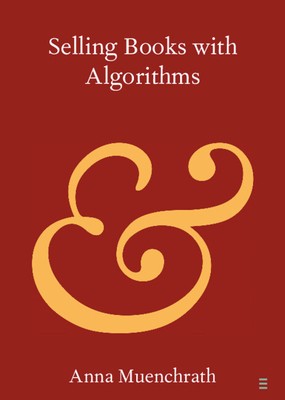
- We will send in 10–14 business days.
- Author: Anna Muenchrath
- Publisher: Cambridge University Press
- ISBN-10: 1009339699
- ISBN-13: 9781009339698
- Format: 12.7 x 17.8 x 0.5 cm, minkšti viršeliai
- Language: English
- SAVE -10% with code: EXTRA
Reviews
Description
In 1997 Amazon started as a small online bookseller. It is now the largest bookseller in the US and one of the largest companies in the world, due, in part, to its implementation of algorithms and access to user data. This Element explains how these algorithms work, and specifically how they recommend books and make them visible to readers. It argues that framing algorithms as felicitous or infelicitous allows us to reconsider the imagined authority of an algorithm's recommendation as a culturally situated performance. It also explores the material effects of bookselling algorithms on the forms of labor of the bookstore. The Element ends by considering future directions for research, arguing that the bookselling industry would benefit from an investment in algorithmic literacy.
EXTRA 10 % discount with code: EXTRA
The promotion ends in 21d.20:05:32
The discount code is valid when purchasing from 10 €. Discounts do not stack.
- Author: Anna Muenchrath
- Publisher: Cambridge University Press
- ISBN-10: 1009339699
- ISBN-13: 9781009339698
- Format: 12.7 x 17.8 x 0.5 cm, minkšti viršeliai
- Language: English English
In 1997 Amazon started as a small online bookseller. It is now the largest bookseller in the US and one of the largest companies in the world, due, in part, to its implementation of algorithms and access to user data. This Element explains how these algorithms work, and specifically how they recommend books and make them visible to readers. It argues that framing algorithms as felicitous or infelicitous allows us to reconsider the imagined authority of an algorithm's recommendation as a culturally situated performance. It also explores the material effects of bookselling algorithms on the forms of labor of the bookstore. The Element ends by considering future directions for research, arguing that the bookselling industry would benefit from an investment in algorithmic literacy.


Reviews